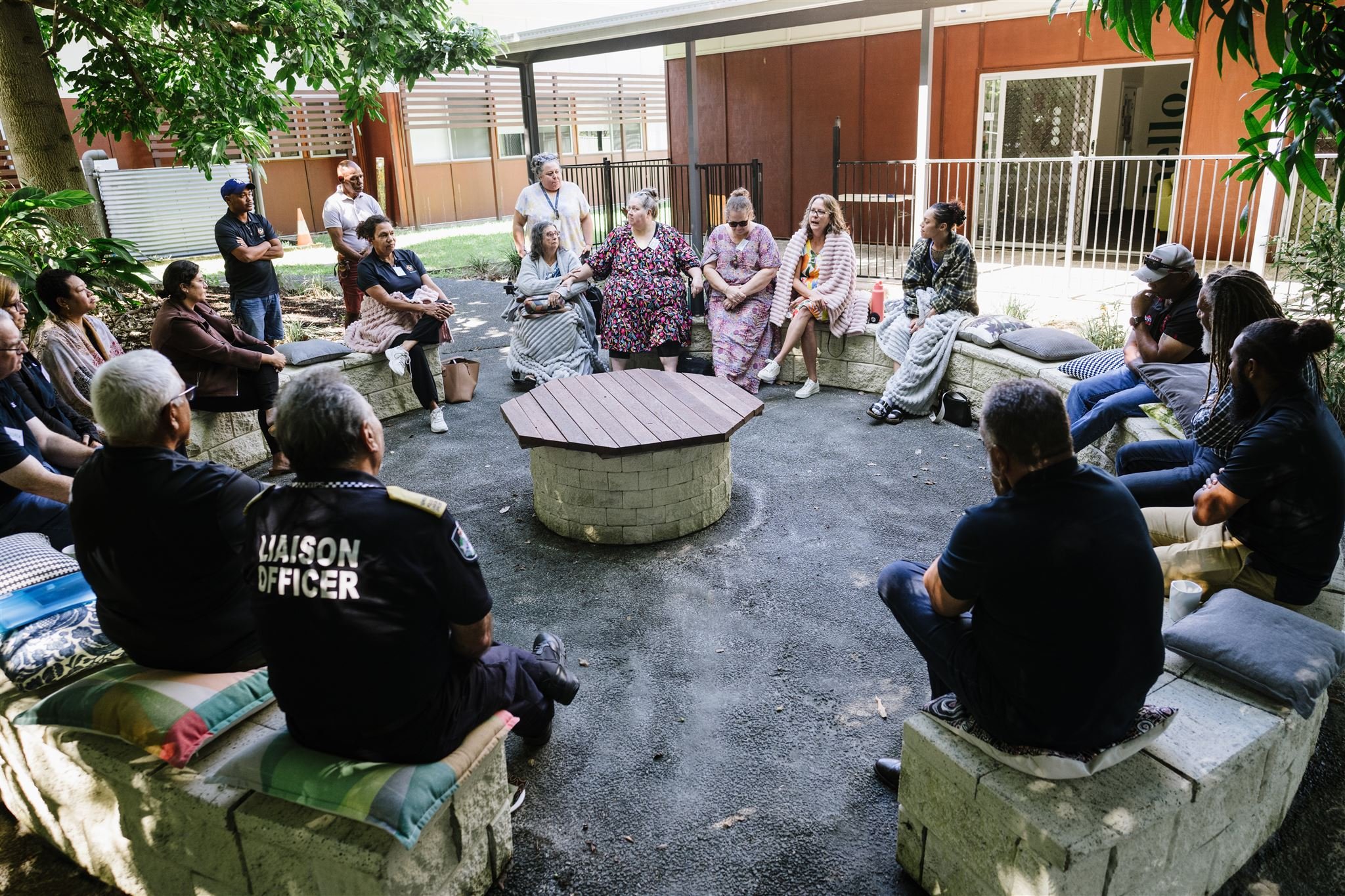From the Ground Up: Rethinking Impact Through the Power of Place
















Nadine Haddad
Earlier this month I had the privilege of sitting with communities on Stradbroke Island and in Deception Bay North. And what I witnessed was a quiet revolution in education, belonging, and justice, where history is held, injustice is named, and schools are ecosystems of belonging, healing, and change.
Stradbroke Island’s Justice Reinvestment Initiative
On Stradbroke Island, the Justice Reinvestment initiative has transformed the community's approach to education. Learning is embedded in Country, culture, and kinship. Local leadership is a way of life. Elders are central to the education system, and young people are centred as carriers of cultural legacy and future sovereignty. Schools are held accountable to community, not the other way around.
Here is a system led from the ground up, with cultural governance, justice reinvestment, and truth-telling at the core. Where wrap-around care is embedded in kinship structures, and the system is thriving.
So successful is this initiative that the Department of Education is looking to scale this model across the region. But it raises a critical question: How do we honour community-led, culturally grounded approaches without replicating them out of context?
Deception Bay’s North School
The Deception Bay North school is a place where educators, families, and service providers come together to respond to the complex, layered needs of young people.
There is a raw honesty here. About what hasn’t worked. About what must change. And about the courage it takes to keep showing up. The school is more than a centre for learning. It provides food for families, supports healing, and amplifies the voices of young people.
Its real superpower is its volunteers. Community members who show up daily and provide that critical community-led leadership. They hold space, build trust, and carry hope. They are the glue that holds it all together. Yet where in our systems are they counted?
People Power
There has been an undeniable thread woven throughout PLACE’s Listening Tour: the leadership of volunteers. They are the heart of community life, and yet in our current systems they are rarely counted. Where, in our measures of impact, do we honour their time, care, and leadership?
This human infrastructure is what makes place-based work possible because true impact is relational, not transactional. It’s not siloed or linear. It’s deeply interwoven.
A Case For Change
On Stradbroke Island and in Deception Bay North, you can’t separate the school from the community, the health centre, the Aunties on the board, or the young people running programs. They are all connected, yet we impose narrow funding models that fail to reflect this interconnectedness.
This needs to change. Let’s design funding frameworks that reflect the complexity, integrity, and brilliance of place-based work. Let’s redefine what counts and who counts.
Often, the most transformative ideas emerge from community-held wisdom, from people quietly leading change, often without recognition or resourcing.
These communities have shown what’s possible when we listen deeply, trust local leadership, and act with integrity. The challenge is no longer about creating the change that is needed; it’s whether we’re brave enough to walk alongside those already making that change a reality.



